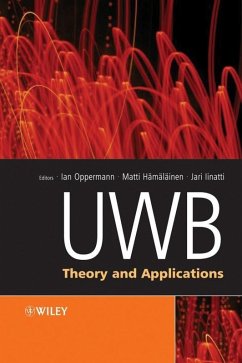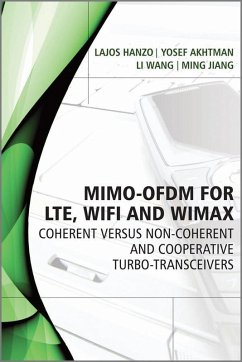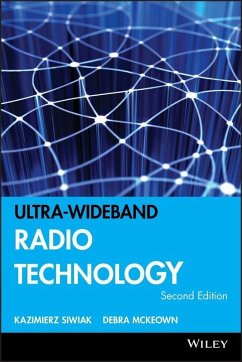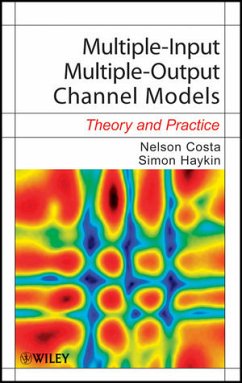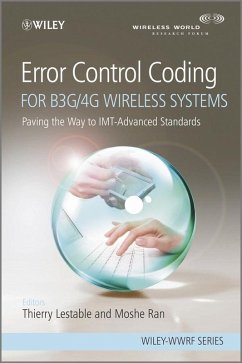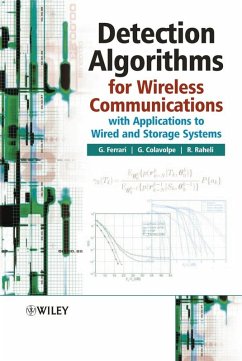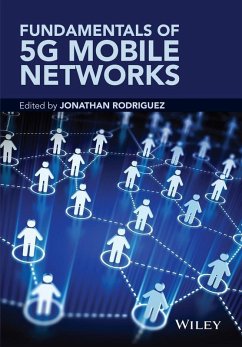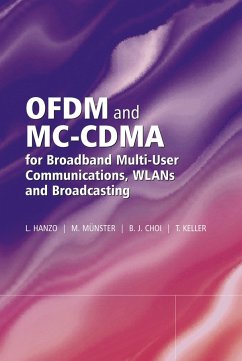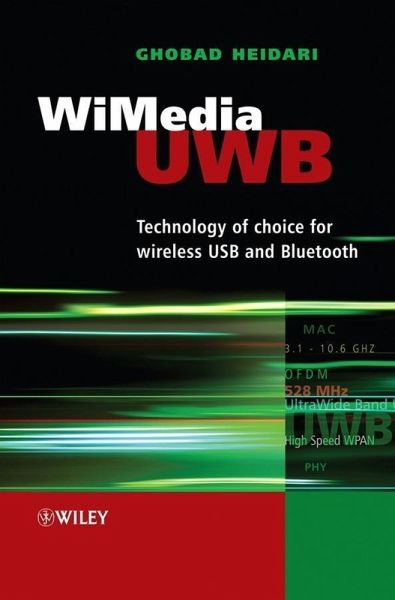
WiMedia UWB (eBook, PDF)
Technology of Choice for Wireless USB and Bluetooth

PAYBACK Punkte
0 °P sammeln!
UWB (ultra-wideband) has been investigated for many decades but only recently has it become commercially viable. With the advent of WiMedia UWB technology and its associated standard specifications, the stage is set for the next generation of WPAN applications to take root. WiMedia UWB focuses on the ECMA-368 standard. Both PHY layer and MAC sublayers specified in this standard are explained in great detail. The book offers not only the facts about the requirements of the standard, but also the motivation and logic behind them. To give a comprehensive perspective of the UWB technology to the r...
UWB (ultra-wideband) has been investigated for many decades but only recently has it become commercially viable. With the advent of WiMedia UWB technology and its associated standard specifications, the stage is set for the next generation of WPAN applications to take root. WiMedia UWB focuses on the ECMA-368 standard. Both PHY layer and MAC sublayers specified in this standard are explained in great detail. The book offers not only the facts about the requirements of the standard, but also the motivation and logic behind them. To give a comprehensive perspective of the UWB technology to the reader, other interrelated topics are also examined in this book. These include the history of UWB and its recent standardization attempts; UWB applications and advantages; UWB spectrum allocation and regulations around the world; UWB platform clients: Certified Wireless USB (CW-USB), Bluetooth, and WLP (WiMedia Link layer Protocol, which enables Internet Protocol over UWB); as well as some important implementation issues and considerations. As the first application of WiMedia UWB, CW-USB is given a special and more comprehensive treatment. This book is ideal for any engineer or engineering managers who are expecting to either develop a solution based on UWB or to integrate it with other devices. It will also be of interest to researchers who require an overview or an interpretation of the technology. * One of the first books to describe the WiMedia standards (PHY and MAC) in detail * A comprehensive approach to de-obfuscating the entire WiMedia UWB technology, from the PHY through the MAC, the MAC clients, the applications, and the regulations * Includes a description of the CW-USB standard and its relation to WiMedia MAC * Provides an up-to-date view of the UWB spectrum allocations and associated regulations around the world * Derived from hands-on experiences in WiMedia UWB standards and system development efforts.
Dieser Download kann aus rechtlichen Gründen nur mit Rechnungsadresse in D ausgeliefert werden.



